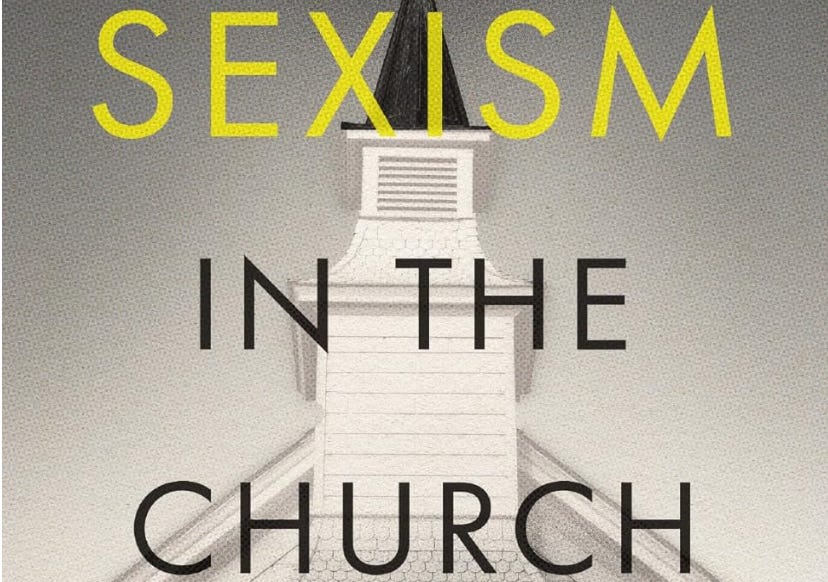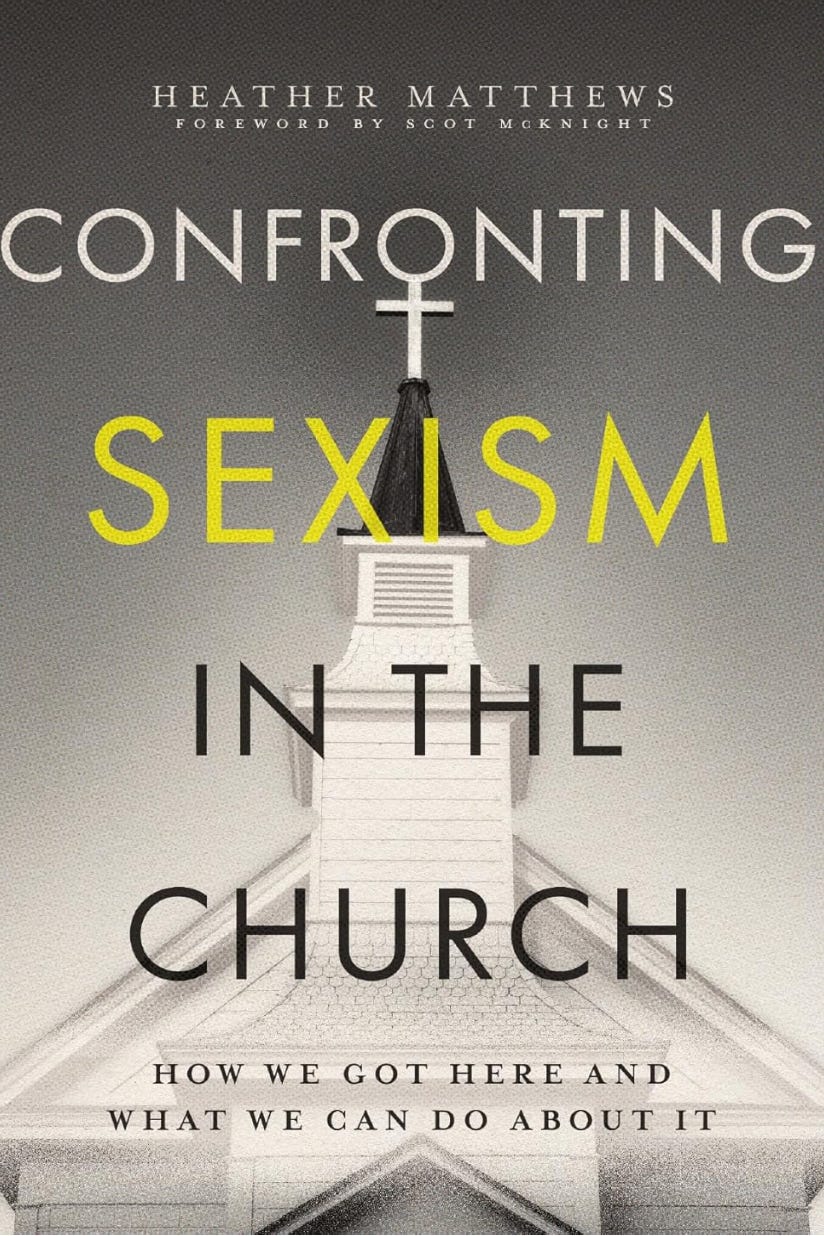This post continues our series about Heather Matthews’ new book, Confronting Sexism in the Church.
This post is by Susy Flory
I love school and I love learning. There’s something deeply satisfying about studying, asking questions, hearing from wise teachers, and taking quizzes. I love all quizzes, including the personality types. Whether it’s Myers Briggs, MMPI, Enneagram, or the Winnie the Pooh quiz, I’m in.
My results always show that I’m introspective, bookish, and love knowledge. When I’m in leadership, I’m the quiet, introverted kind. In the Pooh universe, I’m most like Owl. One thing I am not is confrontational. I’d much rather hide at the back of the crowd observing a march, than brandish a banner up front. I am not, by nature, an advocate.
But there was that one time when I wrote a 16-page single-space letter to the pastors at my megachurch and asked to read it to them in person. They agreed. Knees shaking, here is how I began:
Dear Brothers in Christ: This Open Letter is an expression of my appreciation for you, along with my ministry testimony and a formal request to change the status quo for women at our church with a few potential solutions.
I proceeded to read the entire thing, word by word, baring my soul and pleading for change. There were four pastors present: one nodded and sometimes smiled; one came to tears; one fell asleep; and one, who had been my mentor, listened for a while then turned his back on me and checked his email a couple of times. Nevertheless, I persisted.
When Dr McKnight asked me to review a chapter in the new book by Heather Matthews, Confronting Sexism in the Church, I was immediately drawn to chapter 10, “Confronting Sexism in a Church or Organization.” Matthews begins the chapter with her very positive experience at Fuller Theological Seminary which is committed to women, affirming their gifts and calling. I had a similar experience at Northern Seminary, and now at Houston Theological Seminary. But this commitment is not typical of evangelical spaces, “where sexism and patriarchy are strongest,” Matthews writes. “In most evangelical churches, women are limited in some degree in their roles and leaders both consciously and unconsciously.” Even in organizations that are limping towards the ideal, “women are still impacted by evangelical theology and tradition that restricts women.” This has been true for me; as a woman I am far more free to exercise my gifts and experience out in the general culture of the U.S. than I am in the evangelical churches I have served in.
For over five years, I've been thinking and praying on this letter and waiting on God's leading, timing, and release. During the wait, I’ve been meditating and working my way through the book of Acts recently; it's such a beautiful and rich promise of the Holy Spirit at work in both men and women. It has encouraged me to pursue this quest—which feels like a risk—to address you here today. I am afraid, but I am here anyway. After a few years serving at our church, I somehow became a lay leader This was not my plan. But I seemed to grow in influence and leadership and when I helped plan something, or taught, people paid attention. They listened. They were inspired, and they seemed to reconnect with God and his purpose for their life. In addition, women began to ask me for advice, ask to meet with me, and ask me to mentor them. I began to have the privilege of mentoring and speaking into the lives of other female leaders, along with praying for and with them. However, as I have grown into my own calling and ministry, both inside and outside our church, I began to experience a challenge in the realization that there were limits placed on me, and on all other women, at our church.
So many faithful women are hanging on in evangelical churches, yearning to use their gifts and abilities to serve the body of Christ, but they are hobbled. I vividly remember my dad once trying out hobbles on our quarter horse, Y-Bar, who had never had anything wrapped around his front feet before, much less shackles, and who could not understand why he couldn’t walk. He kept struggling, my sister and I started crying and begging my dad to take them off. This is what the church has done; we have been hobbled. We are taught to submit and become better women, wives, mothers, and Christians. In the end, that’s why we allow the hobbles to stay on, because we love Jesus and want to be good Christians.
Matthews argues the church is experiencing an enormous loss to the evangelical community—a loss of “distinctive theological voices, spiritual insights, hard-earned wisdom, spiritual gifts, and talents.” Some women stay, some leave, and some commit to effecting change. Churches and organizations must address sexism and take concrete steps to create environments where women can thrive by 1) Developing a robust theology that stands against the historical sexism in the church; 2) Creating a vision for women’s flourishing; 3) Supporting women’s identity and vocation; 4) Developing organizational policies and structures in line with that theology, and; 5) Putting into practice both theology and policies.
My dream is for us to cultivate and encourage dynamic and passionate women missionaries, ministry founders, seminary professors, theologians, church planters, writers, speakers, preachers, and teachers. What if, even now, we have in our congregation the next Beth Moore, or Anne Graham Lotz, or Priscilla Shirer, or Lynn Cohick, or Megan Boudreaux, or Kat Armstrong, or Lisa Harper? What if your own daughter, granddaughter, or great-granddaughter is meant to lead, teach, or preach to edify the Church? We need every member of our church, male or female, to use the gifts God has given them to the fullest extent possible, to win souls to Christ.
This chapter is a very practical one, and I wish I’d had this book in hand when I decided to confront my own church, as my letter didn’t have much of an impact. When I emailed a couple of months later to ask for a possible response, I was told a response wasn’t necessary. That was the end of the matter as far as I know. But I didn’t give up, I went to seminary. I’m teaching, preaching, and writing. I’m still that same shy girl who raised her hand too much in Sunday School, I’m just unhobbled now.
Let’s unleash our women. We have no time to waste.
You can read the full text of Susy’s letter here.






Susy, it took so much courage for you to write that letter to your pastors. I’m so proud of you and I know it wasn’t in vain. It may not have paid dividends in that place but you, like this book, are encouraging and equipping women (and allied men) to use their voices. Thanks for your wisdom and chutzpah!
Thank you Suzy and thank you Scott